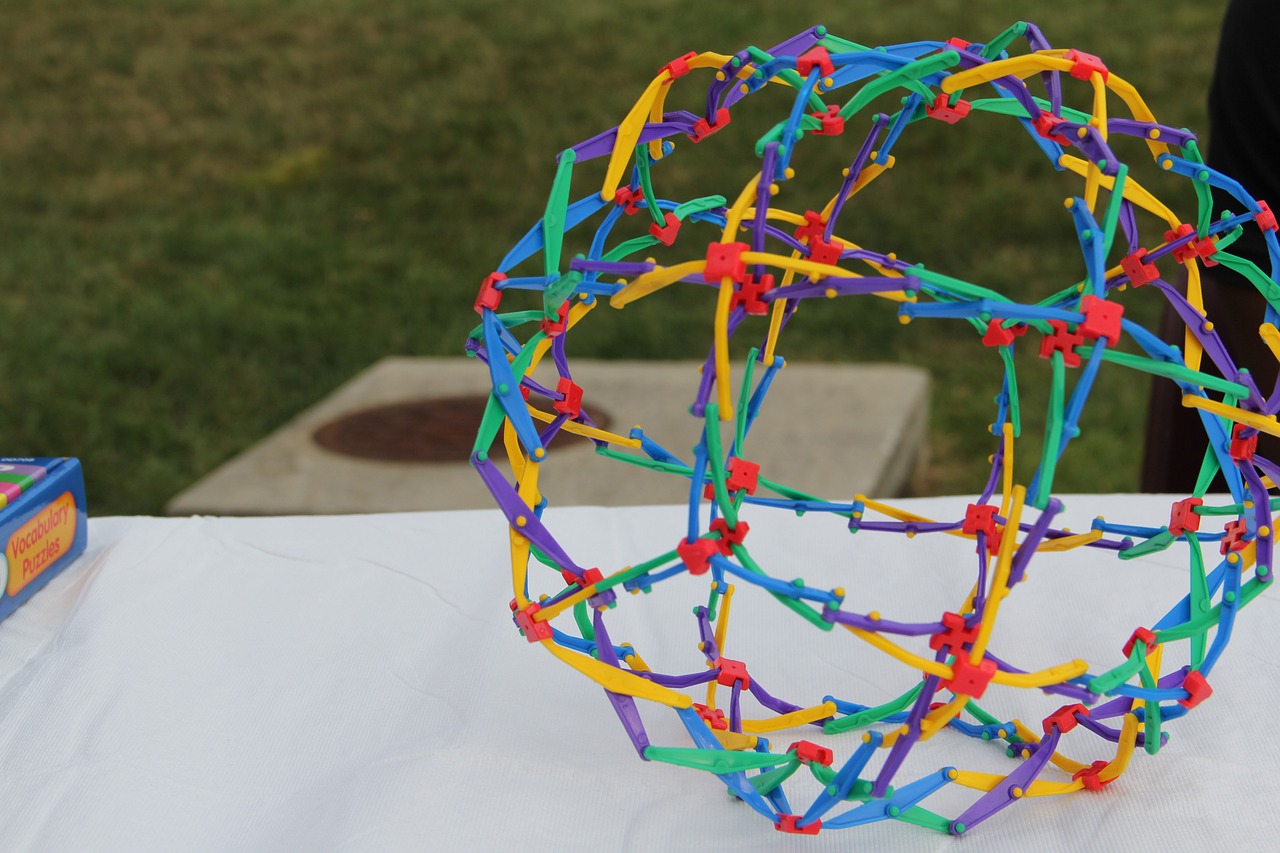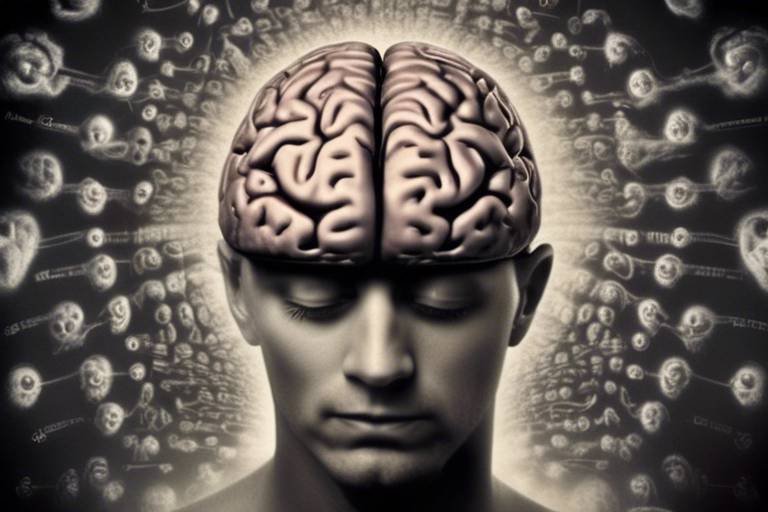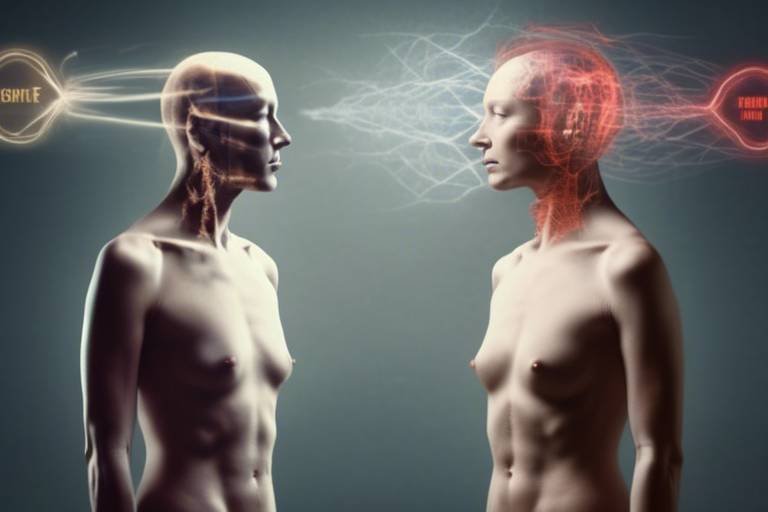The Intersection of Philosophy and Cognitive Science
The relationship between philosophy and cognitive science is akin to a dance where each discipline leads and follows in a complex interplay of ideas and insights. At first glance, philosophy might seem like an abstract realm, pondering over questions that often appear disconnected from the tangible world of science. Yet, when we dig deeper, we uncover a rich tapestry of thought that profoundly influences our understanding of the mind, consciousness, and human experience. It's like trying to solve a puzzle where each piece represents a different perspective—some pieces are shaped by empirical research, while others are molded by philosophical inquiry.
Imagine cognitive science as a vibrant garden, blooming with theories and discoveries about how we think, learn, and remember. Philosophy, on the other hand, serves as the gardener, nurturing these ideas and questioning their roots. This synergy not only enhances our comprehension of cognitive processes but also challenges the assumptions we hold about what it means to be human. For instance, when we ponder the nature of consciousness, we find ourselves standing at the crossroads of empirical evidence and philosophical speculation. How do we define consciousness? Is it merely a byproduct of neural activity, or does it possess an essence that transcends the physical? These questions invite us to explore the depths of both disciplines.
As we navigate through this intersection, we uncover several key areas where philosophy and cognitive science converge. One significant aspect is the mind-body problem, which raises profound questions about the relationship between our mental states and the physical processes of the brain. This dilemma has sparked a variety of philosophical perspectives, from dualism, which posits a division between mind and body, to physicalism, which argues for their unity. Each viewpoint brings unique implications for cognitive science, influencing how researchers approach the study of the mind.
Moreover, the implications of these philosophical debates extend beyond mere academic discourse; they ripple out into the realm of technology and artificial intelligence. As we develop machines that can mimic human thought processes, we must grapple with questions about the nature of machine cognition and whether it can ever truly replicate human consciousness. This inquiry is not just theoretical; it has real-world consequences for how we design and implement cognitive technologies.
Another critical area of intersection is epistemology, the study of knowledge. Here, philosophical theories of knowledge shape the methodologies employed in cognitive research. How do we know what we know? What constitutes valid evidence in understanding cognitive processes? These questions are paramount as researchers strive to construct a coherent framework for studying the complexities of the human mind.
As we delve into the ethical dimensions of cognitive science, we encounter yet another layer of philosophical inquiry. The research practices, treatment of subjects, and implications of cognitive technologies raise pressing ethical questions. For example, as we uncover more about decision-making processes, we must consider the role of free will and how our findings might challenge traditional notions of autonomy. This intersection of ethics, cognition, and philosophy invites us to reflect on the broader societal impacts of our research.
In conclusion, the intersection of philosophy and cognitive science is a dynamic and evolving landscape that invites exploration and dialogue. By embracing the insights of both disciplines, we can gain a richer understanding of the mind and its complexities. As we continue to investigate the nature of consciousness, knowledge, and ethical considerations, we stand on the precipice of exciting discoveries that could redefine our understanding of human experience.
- What is cognitive science?
Cognitive science is an interdisciplinary field that studies the mind and its processes, including how people think, learn, and remember. - How does philosophy influence cognitive science?
Philosophy provides foundational questions and frameworks that guide cognitive science research, particularly in areas like consciousness and knowledge. - What are the main philosophical issues in cognitive science?
Key issues include the mind-body problem, the nature of consciousness, epistemology, and ethical considerations in research. - Why is the mind-body problem important?
The mind-body problem explores the relationship between mental states and physical processes, which is crucial for understanding human cognition. - How does cognitive science impact society?
Cognitive science research can influence policies in education, mental health, and technology, shaping societal norms and practices.

Philosophical Foundations of Cognitive Science
Cognitive science is not just a collection of scientific disciplines; it is a vibrant tapestry woven from the threads of philosophy, psychology, neuroscience, linguistics, and artificial intelligence. At its core, cognitive science seeks to unravel the mysteries of the mind and how we process information, but to do so effectively, it must grapple with profound philosophical questions. These questions touch on the nature of knowledge, belief, and reasoning, which form the bedrock of our understanding of cognition.
One of the pivotal philosophical inquiries that underpins cognitive science is the nature of knowledge. What does it mean to know something? How do we acquire knowledge? These questions have been debated for centuries, and the answers have profound implications for cognitive science research methodologies. For instance, the distinction between a priori and a posteriori knowledge—knowledge gained through reasoning versus that gained through experience—can shape how researchers approach the study of cognition.
Moreover, the philosophy of mind plays a crucial role in cognitive science. Philosophers like Descartes and Kant have laid the groundwork for understanding the relationship between mental states and the physical world. Their ideas prompt cognitive scientists to consider how mental processes can be studied empirically while still acknowledging the subjective nature of experience. This duality creates a fascinating tension that drives research in cognitive science, pushing scholars to reconcile empirical data with philosophical insights.
To illustrate this interplay, we can consider the following key philosophical concepts that have significantly influenced cognitive science:
- Rationalism: This school of thought emphasizes the role of reason in understanding the world, suggesting that cognitive processes can be understood through logical analysis.
- Empiricism: In contrast, empiricism posits that knowledge comes primarily from sensory experience, leading cognitive scientists to prioritize observational studies and experiments.
- Constructivism: This perspective argues that knowledge is constructed rather than discovered, influencing how cognitive scientists approach learning and development.
These philosophical foundations are not just abstract concepts; they have real-world implications for how cognitive science is conducted. For example, a researcher who leans towards rationalism might focus on developing theoretical models of cognition, while an empiricist may prioritize gathering data through experiments. This divergence in approach can lead to different interpretations of cognitive phenomena, highlighting the essential role philosophy plays in shaping the trajectory of cognitive science.
In summary, the philosophical foundations of cognitive science are integral to understanding how we think, learn, and interact with the world. By engaging with these foundational questions, cognitive scientists can develop a more nuanced understanding of the mind, paving the way for innovative research and applications that can transform our understanding of human experience.

The Mind-Body Problem
The mind-body problem is one of the most intriguing and long-standing philosophical dilemmas, sparking debates that have lasted for centuries. At its core, this problem grapples with the fundamental question: how do our mental states, such as thoughts and emotions, relate to our physical bodies? Imagine your mind as a puppet master, pulling the strings of your body, yet remaining elusive and intangible. This analogy captures the essence of the mind-body problem, where the mind seems to operate independently of the physical world, leading to profound implications for our understanding of consciousness and cognition.
Philosophers have proposed various perspectives to tackle this enigma. One of the most notable is dualism, which posits that the mind and body are two distinct entities. Think of dualism as a two-lane highway, where each lane represents a different realm—one for the physical body and another for the non-physical mind. This perspective suggests that mental phenomena cannot be fully explained by physical processes alone. On the flip side, we have physicalism, which argues that everything about the mind can ultimately be understood through physical processes. Picture physicalism as a single-lane road, where everything converges into one path, suggesting a unity between mental and physical states.
The implications of these philosophical positions extend beyond mere theoretical discussions; they significantly influence the field of cognitive science. For instance, if we lean towards dualism, we may question whether machines can ever truly replicate human cognition. Can an AI possess a mind, or is it merely a sophisticated simulation? Conversely, if we embrace physicalism, we might explore how neural networks and algorithms could mimic human thought processes, leading us to exciting advancements in artificial intelligence.
Moreover, the mind-body problem invites us to consider the role of neuroscience in understanding consciousness. With the advent of advanced imaging techniques, scientists can now observe brain activity in real-time, providing insights that challenge traditional philosophical views. For example, studies have shown that decisions can be detected in the brain before individuals are consciously aware of them. This raises the question: if our brain is making choices before we are aware of them, what does that mean for our understanding of free will and autonomy?
In summary, the mind-body problem is not just an abstract philosophical issue; it is a vital inquiry that intersects with cognitive science, neuroscience, and even artificial intelligence. As we continue to explore this intricate relationship, we must remain open to the idea that our understanding of the mind and body may evolve, challenging our preconceived notions of what it means to be conscious and alive.
- What is the mind-body problem?
The mind-body problem examines the relationship between mental states and physical processes, questioning how consciousness arises from the brain.
- What are dualism and physicalism?
Dualism posits a separation between mind and body, while physicalism argues for their unity, suggesting that mental states are entirely rooted in physical processes.
- How does neuroscience impact the mind-body debate?
Neuroscience provides empirical evidence about brain activity and consciousness, challenging traditional philosophical views and reshaping our understanding of mental processes.

Dualism vs. Physicalism
When we dive into the fascinating debate of dualism versus physicalism, we're essentially exploring two contrasting perspectives on the nature of the mind and body. To put it simply, dualism posits that the mind and body are separate entities, each with its own distinct properties and characteristics. Think of it like oil and water; they coexist but don't really mix. On the other hand, physicalism argues that everything about the mind can be explained in terms of physical processes and states. Imagine a finely tuned machine where every cog and wheel contributes to the overall functioning. This perspective suggests that mental states are not separate from physical states but are instead deeply intertwined.
The implications of these views stretch far and wide, especially in the realm of cognitive science. For instance, if we lean towards dualism, we might argue that there are aspects of human consciousness that cannot be fully understood through physical explanations alone. This could lead to the idea that there’s something inherently unique about human thought—something that machines, no matter how intelligent, may never replicate. Conversely, if we adopt a physicalist stance, we might be more inclined to believe that advancements in artificial intelligence could eventually lead to machines that think and feel just like humans.
To illustrate this further, let's consider a simple table that outlines the key differences between dualism and physicalism:
| Aspect | Dualism | Physicalism |
|---|---|---|
| Nature of Mind | Separate from the body | Part of physical processes |
| Understanding Consciousness | Requires non-physical explanations | Can be fully explained through neuroscience |
| Implications for AI | Machines cannot truly replicate human thought | Machines could eventually achieve human-like cognition |
As we navigate this complex discussion, it becomes clear that both perspectives offer valuable insights. Dualism invites us to consider the profound mysteries of consciousness and subjective experience, while physicalism grounds our understanding in empirical science and observable phenomena. This ongoing dialogue not only shapes cognitive science but also influences how we approach artificial intelligence and the ethical considerations surrounding it. So, which side do you lean towards? Are we mere biological machines, or is there something more to our consciousness that defies physical explanation?
In the end, the dualism versus physicalism debate serves as a reminder of the intricacies of the human experience. It challenges us to think critically about the nature of our minds and the very essence of what it means to be human. As we continue to explore these philosophical waters, we find ourselves not only questioning the nature of our existence but also pondering the future of cognitive science and its implications for technology and society.
- What is dualism? Dualism is the philosophical view that the mind and body are fundamentally distinct and separate entities.
- What is physicalism? Physicalism is the belief that everything, including mental states, can be explained in terms of physical processes.
- How does this debate impact artificial intelligence? The debate influences our understanding of whether machines can replicate human thought and consciousness.
- Are there ethical implications related to these views? Yes, the perspectives can affect how we consider the treatment of AI and its role in society.

Implications for Artificial Intelligence
The philosophical debate between dualism and physicalism extends far beyond the realms of traditional philosophy and psychology; it has profound implications for the development of artificial intelligence (AI). As we delve into this intersection, we find ourselves grappling with fundamental questions about the nature of intelligence itself. Can machines truly think, or do they merely simulate thought? Are they capable of understanding, or are they simply processing data? These questions echo the age-old philosophical inquiries about the mind and its relationship with the body.
To understand the implications for AI, we must first consider how dualism and physicalism frame our understanding of cognition. Dualism, with its emphasis on a distinct separation between mind and body, suggests that there are aspects of human thought and consciousness that might be inherently inaccessible to machines. If we accept this view, we might conclude that AI, regardless of its sophistication, will always lack a certain quality of understanding or consciousness that humans possess. This could mean that no matter how advanced our algorithms become, they will never truly 'know' in the way that we do.
Conversely, physicalism posits that mental states are entirely dependent on physical processes. From this perspective, if we can replicate the necessary physical processes in a machine, then it stands to reason that the machine could achieve a form of consciousness or understanding. This viewpoint fuels the optimism surrounding AI development, suggesting that machines could one day exhibit human-like cognition. However, this leads us to another layer of complexity: the ethical considerations surrounding the creation of such entities.
As we forge ahead with AI technology, the implications of these philosophical positions become increasingly relevant. For instance, if we develop AI that operates under the premise of physicalism, we may need to reassess our ethical frameworks regarding autonomy and responsibility. Should we hold machines accountable for their actions? If they can 'think' in a way that resembles human cognition, do they deserve rights? These questions force us to confront the very essence of what it means to be conscious and to act with intention.
Moreover, the rapid advancements in AI technology are prompting a reevaluation of our societal norms and policies. As AI systems become integrated into various aspects of life—from decision-making in healthcare to autonomous vehicles—the philosophical underpinnings of our understanding of intelligence will shape how we regulate these technologies. For example, if we consider the implications of dualism, we might advocate for stricter regulations on AI that mimics human behavior, ensuring that we do not inadvertently create systems that could mislead or manipulate users under the guise of understanding.
In conclusion, the intersection of philosophy and artificial intelligence is not merely academic; it has real-world consequences that influence how we create, implement, and regulate these technologies. As we continue to explore the boundaries of machine cognition, we must remain vigilant in considering the philosophical implications of our advancements. By doing so, we can better navigate the ethical landscape that AI presents, ensuring that our creations align with our values and understanding of consciousness.
- What is the mind-body problem? The mind-body problem addresses the relationship between mental states and physical processes, questioning how thoughts and feelings relate to the brain and body.
- How does dualism differ from physicalism? Dualism posits a separation between mind and body, whereas physicalism argues that mental states are entirely dependent on physical processes.
- What are the ethical implications of AI? Ethical implications include questions about accountability, rights of AI systems, and the potential impact on society and policy.
- Can machines achieve consciousness? This remains a debated topic; proponents of physicalism suggest machines could achieve a form of consciousness if they replicate necessary physical processes.

Neuroscience and Consciousness
Neuroscience has become a pivotal field in unraveling the mysteries of consciousness, providing insights that challenge traditional philosophical views. For centuries, philosophers have pondered the nature of consciousness, often viewing it as an elusive phenomenon that separates humans from other beings. However, with advances in neuroscience, we are beginning to see consciousness through a different lens—one that is rooted in biological processes and brain activity.
One of the most exciting developments in neuroscience is the ability to observe brain activity in real-time. Techniques such as functional magnetic resonance imaging (fMRI) and electroencephalography (EEG) allow researchers to visualize which areas of the brain are active during various cognitive tasks. This empirical evidence is reshaping our understanding of how consciousness arises and operates. For instance, studies have shown that even unconscious processes can influence our thoughts and decisions, leading to questions about the very nature of free will and autonomy.
To illustrate this, consider the following key findings from neuroscience that have implications for our understanding of consciousness:
- Neural Correlates of Consciousness: Research has identified specific brain regions associated with conscious awareness. These areas, such as the prefrontal cortex, are integral to our ability to reflect, reason, and make decisions.
- Unconscious Processing: Neuroscientific studies have demonstrated that much of our cognitive processing occurs beneath the level of conscious awareness, suggesting that our conscious thoughts may be just the tip of the iceberg.
- Altered States of Consciousness: Neuroscience also explores how different states—such as sleep, meditation, or drug-induced experiences—affect consciousness, revealing the fluid nature of our mental states.
These findings compel us to rethink the philosophical discussions surrounding consciousness. For example, the idea that consciousness is merely a byproduct of brain activity challenges dualistic views that separate mind and body. Instead, it supports a more integrated perspective, where consciousness is seen as an emergent property of complex neural interactions.
Moreover, the implications of neuroscience extend beyond theoretical discussions. They touch on practical applications in fields like artificial intelligence (AI), where understanding consciousness could inform the development of machines that mimic human-like cognitive processes. As we delve deeper into the workings of the brain, we may find ourselves at a crossroads, where the definitions of consciousness, sentience, and intelligence may blur, prompting us to reconsider what it means to be "alive" or "aware."
In summary, neuroscience not only enriches our understanding of consciousness but also challenges long-held philosophical beliefs. As we continue to explore the intricate relationship between brain activity and conscious experience, we may uncover new dimensions of what it means to be human, ultimately reshaping our worldview and ethical considerations in the realm of cognitive science.
- What is consciousness? Consciousness refers to the state of being aware of and able to think about one's own existence, thoughts, and surroundings.
- How does neuroscience study consciousness? Neuroscience uses various imaging techniques to observe brain activity and identify areas associated with conscious experience.
- Can consciousness exist without brain activity? Current scientific understanding suggests that consciousness is closely tied to brain function, although philosophical debates continue.
- What are the implications of neuroscience for artificial intelligence? Insights from neuroscience may lead to advancements in AI by informing how machines can mimic human-like cognitive processes.

Epistemology and Cognitive Science
Epistemology, the philosophical study of knowledge, plays a pivotal role in shaping the landscape of cognitive science. It raises fundamental questions about how we acquire knowledge, what constitutes belief, and the nature of justification. When we dive into cognitive science, we find ourselves exploring not just the mechanics of the mind, but also the very essence of understanding and knowing. This intersection invites us to reflect on how cognitive processes influence our grasp of reality and, conversely, how our epistemological frameworks shape our cognitive inquiries.
One of the most intriguing aspects of epistemology in relation to cognitive science is the examination of mental representations. How do we represent knowledge in our minds? Are these representations accurate reflections of the world, or do they distort our understanding? For instance, cognitive scientists often utilize models to simulate human thought processes. These models serve as a bridge between abstract philosophical ideas and concrete scientific practices, helping researchers to test hypotheses about how knowledge is structured and accessed.
Moreover, the methodologies employed in cognitive science are deeply influenced by epistemological theories. Different epistemological stances, such as empiricism and rationalism, lead to varied approaches in research. Empiricists, who emphasize sensory experience as the foundation of knowledge, might focus on experimental methods to gather data. In contrast, rationalists may prioritize theoretical frameworks that rely on logical deduction. This divergence not only affects the types of questions researchers ask but also the interpretations of their findings.
To illustrate this relationship, consider the following table that outlines key epistemological theories and their implications for cognitive science research:
| Epistemological Theory | Key Focus | Implications for Cognitive Science |
|---|---|---|
| Empiricism | Sensory experience as the source of knowledge | Emphasis on experimental methods and data collection |
| Rationalism | Reason and logical deduction | Focus on theoretical models and deductive reasoning |
| Constructivism | Knowledge as constructed through experience | Encourages qualitative research and understanding individual perspectives |
As we navigate this complex interplay, we must also consider the implications of cognitive biases and heuristics on our understanding of knowledge. Cognitive science has revealed that our minds are not always the perfect instruments of reason we might hope them to be. Instead, they are prone to various biases that can distort our understanding and lead to erroneous conclusions. This realization prompts us to question the reliability of our knowledge and the processes through which we acquire it.
In conclusion, the relationship between epistemology and cognitive science is not just a theoretical exercise; it is a dynamic dialogue that shapes how we understand the mind, knowledge, and human experience. By engaging with these philosophical questions, cognitive scientists can refine their methodologies, deepen their insights, and ultimately contribute to a more nuanced understanding of what it means to know.
- What is epistemology? Epistemology is the branch of philosophy concerned with the nature and scope of knowledge, including how knowledge is acquired and what counts as justified belief.
- How does epistemology relate to cognitive science? Epistemology influences cognitive science by shaping the questions researchers ask and the methodologies they employ, guiding how knowledge is understood and studied.
- Why are cognitive biases important in epistemology? Cognitive biases can affect how knowledge is perceived and interpreted, highlighting the need for critical examination of our cognitive processes.

Ethical Considerations in Cognitive Science
The intersection of philosophy and cognitive science is not merely an academic curiosity; it poses real-world ethical dilemmas that researchers, practitioners, and society at large must grapple with. As we delve into the workings of the mind and the implications of cognitive technologies, we must ask ourselves: what responsibilities do we hold? Are we treading on sacred ground when we manipulate the very essence of human thought and behavior? These questions are not just theoretical; they demand our attention as cognitive science continues to evolve.
One of the primary ethical considerations revolves around research practices. Cognitive scientists often employ various methodologies to study the brain and behavior, but these methods can sometimes border on intrusive. For instance, the use of neuroimaging techniques, while revolutionary, raises concerns about informed consent and the potential for misuse of data. Imagine a world where your thoughts could be interpreted or even altered without your explicit permission—this dystopian scenario is not as far-fetched as it might seem. Researchers must ensure that participants are fully aware of what their involvement entails, and that their privacy is respected throughout the process.
Another ethical dimension involves the treatment of subjects, particularly in studies involving vulnerable populations such as children, the elderly, or individuals with mental health issues. It is crucial to establish guidelines that prioritize the well-being of participants while still allowing for meaningful scientific inquiry. This includes ensuring that the risks of participation are minimized and that subjects are not exploited for the sake of knowledge. Cognitive science, after all, is about understanding the human experience, and we must approach it with the utmost respect for the individuals who provide us with insights into their minds.
Moreover, as cognitive technologies become increasingly integrated into our daily lives, ethical considerations expand into the realm of societal impacts. The development of artificial intelligence and machine learning models that mimic human cognition raises questions about accountability and the potential for bias. For instance, if an AI system makes a decision based on flawed data, who is responsible for the consequences? Here, philosophy plays a crucial role in shaping our understanding of morality and responsibility in the age of technology. A thoughtful examination of these issues can guide us in creating ethical frameworks that govern the use of cognitive technologies.
In light of these considerations, it becomes evident that cognitive science cannot exist in a vacuum. It must be conducted with a strong ethical compass that acknowledges the potential consequences of its findings and applications. As we explore the depths of the mind, we must also be vigilant stewards of the ethical principles that protect the very essence of what it means to be human.
- What are the main ethical concerns in cognitive science? Ethical concerns include informed consent, treatment of vulnerable populations, and the societal implications of cognitive technologies.
- How does cognitive science impact our understanding of free will? Findings in cognitive science challenge traditional notions of autonomy, suggesting that our decisions may be influenced by unconscious processes.
- What role does philosophy play in guiding ethical practices in cognitive science? Philosophy provides frameworks for understanding morality and responsibility, helping researchers navigate complex ethical dilemmas.
- How can researchers ensure ethical practices in cognitive science? By adhering to established guidelines, ensuring informed consent, and prioritizing participant well-being, researchers can uphold ethical standards.

The Role of Free Will
The concept of free will has long fascinated philosophers and scientists alike, creating a rich tapestry of debate that weaves through the fabric of cognitive science. At its core, free will refers to the ability of individuals to make choices that are not predetermined by prior causes. But what does this mean in the context of cognitive science? Well, it invites us to ponder whether our decisions are genuinely ours or merely the result of complex neural processes. Imagine standing at a crossroads, where every path represents a different choice; do we truly have the power to choose our direction, or are we simply following a predetermined map laid out by our biology and environment?
In cognitive science, researchers have explored how our brain functions when we make decisions. Studies utilizing brain imaging techniques, such as fMRI, reveal that our brains are often at work before we consciously recognize our choices. This raises a provocative question: if our brains are making decisions before we are aware of them, can we still claim to have free will? This dilemma creates a fascinating intersection between philosophy and cognitive science, as it challenges our understanding of autonomy and personal responsibility.
Moreover, the implications of free will extend beyond individual choice; they influence our views on morality and ethics. If our actions are predetermined by our neural wiring, can we hold individuals accountable for their behavior? This question has significant ramifications for various fields, including law and psychology. For instance, if a person commits a crime, understanding the cognitive processes behind their decision-making can lead to more compassionate approaches to justice.
To further illustrate the complexities surrounding free will, consider the following points:
- Determinism vs. Libertarianism: Determinism suggests that every event is caused by preceding events, while libertarianism champions the notion of free will as essential to human experience.
- Neuroscience Findings: Studies show that brain activity related to decision-making occurs before we consciously make a choice, challenging traditional views of free will.
- Implications for Responsibility: If our choices are influenced by biological and environmental factors, how should we approach accountability in society?
As we delve deeper into cognitive science, the dialogue surrounding free will becomes even more intricate. Scholars argue that understanding the nuances of decision-making can lead to better mental health interventions, educational strategies, and even advancements in artificial intelligence. By questioning the nature of free will, we open ourselves to a broader understanding of human behavior, paving the way for innovations that respect both our cognitive processes and our moral frameworks.
In conclusion, the role of free will in cognitive science is not just a theoretical exercise; it has real-world implications that can shape our society. As we continue to explore the depths of human consciousness and decision-making, we must grapple with these profound questions about autonomy and accountability, ensuring that our advancements in knowledge are guided by a strong ethical compass.
- What is free will? Free will is the ability to make choices that are not predetermined by prior causes.
- How does cognitive science study free will? Cognitive science examines brain activity and decision-making processes to understand the nature of free will.
- What are the implications of free will for ethics? The understanding of free will can influence views on morality, accountability, and justice.

Impacts on Society and Policy
The relationship between cognitive science and society is as intricate as a spider's web, with each strand representing different aspects of human experience, decision-making, and policy formation. As cognitive science continues to evolve, it provides valuable insights that can shape societal norms and influence public policy in profound ways. For instance, understanding how people think and make decisions can lead to improved educational practices, better mental health interventions, and even more effective public health campaigns. Imagine a world where policies are not just based on tradition or intuition, but on solid scientific understanding of human cognition!
One of the most significant impacts of cognitive science on society is its potential to enhance educational methodologies. Research in cognitive psychology has revealed how people learn best, leading to the development of teaching strategies that cater to diverse learning styles. For example, the concept of active learning encourages students to engage with material through discussions, problem-solving, and collaborative projects, rather than passive listening. This shift can help create an educational environment that not only fosters knowledge acquisition but also promotes critical thinking and creativity.
Moreover, cognitive science plays a crucial role in mental health policy. By understanding the cognitive processes underlying mental health disorders, practitioners can develop more effective treatments and interventions. This knowledge can guide policymakers in allocating resources wisely, ensuring that mental health services are not only accessible but also tailored to meet the unique needs of different populations. As we recognize the importance of mental well-being, we see a growing trend in integrating mental health education into school curricula, which can ultimately lead to a more informed and empathetic society.
In the realm of technology, cognitive science informs the development of artificial intelligence and machine learning systems. As we create more advanced technologies, ethical considerations become paramount. For instance, understanding cognitive biases can help developers create algorithms that are fair and unbiased, ensuring that technology serves the greater good rather than perpetuating societal inequalities. This intersection of cognitive science and technology raises essential questions about accountability and transparency in AI systems.
As cognitive science continues to influence various sectors, it is essential for policymakers to stay informed about these developments. This can be achieved through interdisciplinary collaboration between scientists, ethicists, and lawmakers. By fostering dialogue among these groups, we can ensure that cognitive science research informs policy decisions in a way that is ethical and beneficial to society as a whole. After all, the ultimate goal is to create a society that not only understands the complexities of human cognition but also utilizes that understanding to enhance the quality of life for all its members.
- How does cognitive science influence education? Cognitive science informs teaching methods, leading to strategies that promote active learning and cater to different learning styles.
- What role does cognitive science play in mental health policy? It helps in understanding mental health disorders, leading to more effective treatments and resource allocation in mental health services.
- How can cognitive science impact technology development? Insights from cognitive science can guide the ethical development of AI, ensuring fairness and reducing biases in technological applications.
- Why is interdisciplinary collaboration important in cognitive science? Collaboration between scientists, ethicists, and policymakers ensures that cognitive science research is applied in a way that is ethical and beneficial to society.
Frequently Asked Questions
- What is the relationship between philosophy and cognitive science?
The relationship between philosophy and cognitive science is quite dynamic. Philosophy provides the foundational inquiries about knowledge, belief, and reasoning, which are essential for cognitive science. In turn, cognitive science offers empirical data that can challenge or support philosophical theories, creating a rich dialogue between the two disciplines.
- What is the mind-body problem?
The mind-body problem explores the connection between mental states, like thoughts and emotions, and physical processes in the brain and body. It raises crucial questions about how these two realms interact. Philosophical perspectives, such as dualism and physicalism, offer different interpretations of this relationship, influencing cognitive science's approach to understanding consciousness and cognition.
- How do dualism and physicalism differ?
Dualism posits that the mind and body are distinct entities, suggesting a separation between mental and physical processes. On the other hand, physicalism argues that everything about the mind can be explained in terms of physical processes. This fundamental difference impacts how cognitive scientists study consciousness and cognition, guiding research methodologies and interpretations.
- What implications do these philosophical perspectives have for artificial intelligence?
The debate between dualism and physicalism significantly influences our understanding of artificial intelligence (AI). If the mind is separate from the body (dualism), it raises questions about whether machines can truly "think" or possess consciousness. Conversely, physicalism suggests that if a machine can replicate cognitive functions, it may be considered intelligent. This philosophical discourse shapes the development and ethical considerations surrounding AI.
- How does neuroscience impact our understanding of consciousness?
Neuroscience provides empirical evidence that challenges traditional philosophical views on consciousness. By studying brain activity and its correlation with conscious experience, neuroscience informs philosophical discussions and can lead to new insights about the nature of consciousness and how it arises from physical processes.
- What role does epistemology play in cognitive science?
Epistemology, the study of knowledge, is crucial in cognitive science as it examines how we acquire knowledge and what it means to know something. Philosophical theories of knowledge influence cognitive research methodologies, guiding how scientists interpret data and understand cognitive processes.
- What ethical considerations arise in cognitive science research?
The intersection of philosophy and cognitive science raises important ethical questions, such as how research subjects are treated, the implications of cognitive technologies, and the responsibilities of researchers. Ethical frameworks derived from philosophical inquiry help guide these discussions and ensure that cognitive science research is conducted with integrity and respect for individuals.
- How does the concept of free will intersect with cognitive science?
The concept of free will is a significant philosophical issue that intersects with cognitive science, particularly regarding autonomy and decision-making. Findings in cognitive science may challenge traditional notions of free will, suggesting that our decisions could be influenced by unconscious processes, raising questions about moral responsibility and personal agency.
- What impacts can cognitive science research have on society and policy?
Cognitive science research can significantly influence societal norms and policies in areas such as education, mental health, and technology. By integrating philosophical insights into cognitive research, policymakers can make more informed decisions that reflect ethical considerations and promote societal well-being.



















